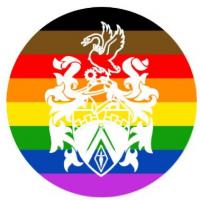Culture and Evolution PhD
Research in the area of Culture and Evolution focuses on cultural variation in, and evolutionary origins of, psychology and behaviour – integration of proximate and ultimate perspectives, across levels of analysis from individual biology and personality, through group and social processes to the broader culture. Our research brings together outstanding evolutionary, cross-cultural and other psychologists and will include evolutionary approaches to human psychology such as human behavioural ecology categorised in these three strands:
Relationships – E.g. interpersonal attraction and mate choice, relationship maintenance and satisfaction, jealousy etc. Also intergroup relations (between cultures and ethnic groups).
Morality – E.g. what is considered right and wrong, political beliefs, views on resource distribution etc.
Conflict & Cooperation – E.g. interpersonal and intergroup, sexual conflict and intrasexual competition, sources of conflict such as inequality etc.
Some more specific examples of topics emphasised by CCE researchers—all relevant to at least one of the above themes—are listed below, followed by the names of CCE members conducting research in each topic.
Attitudes towards, and behavioural consequences of, inequality (Clark, Pound, Price, Scott)
Close personal relationships (Gaines, Marshall)
Community and wellbeing (Launay, Price)
Competitiveness and risk-taking among males (Pound)
Cooperation within groups, including between leaders and followers (Price, Scott)
Cultural variation in prosocial behaviours (Imada)
Emotions in social relationships, such as jealousy (Imada, Marshall, Schuetzwohl)
Impact of social media on relationships (Marshall)
Music, singing, and social bonding (Launay)
Physical and physiological (e.g. gait, muscularity, hormonal) predictors of social and moral attitudes (Clark, Pound, Price)
Physical attractiveness, mate preferences and mating strategies (Clark, Pound, Price, Scott)
Relationship of facial morphology to political and moral attitudes (Pound, Scott)
Relevance of ethnicity in personal relationships (Gaines)
Our researchers publish regularly in the world’s leading journals in psychology (cross-cultural, evolutionary, and social), behavioural biology, and related disciplines. Their work has appeared recently in, for example, Archives of Sexual Behavior; Behavioural Ecology; Biology Letters; Cognition and Emotion; Cross-Cultural Research; Ethology; Evolution & Human Behaviour; Identity; Journal of Cross-Cultural Psychology; Journal of International Development; Journal of Personality and Social Psychology; Journal of Theoretical Biology; Personal Relationships; Proceedings of the National Academy of Sciences of the USA; Proceedings of the Royal Society B: Biological Sciences.
We provide students with a unique opportunity to focus on the two most fundamental and powerful influences on human behaviour: evolution and culture. Many programmes emphasise either one or the other of these influences, but the CCE places a special emphasis on the integration of these two levels of analysis. In doing so, we aim to produce the deepest, most thorough, and most useful possible explanations for human behaviour.
Our researchers have access to:
Extensive psychology laboratory facilities for behavioural experiments (e.g., staff laboratory space and cubicles housing computers with specialist software)
Specialist equipment for facial photography and anthropometric measurements
An NX12 [TC]² 3D Body Scanner for taking anthropometric measurements and creating 3D body models (owned and housed by the College of Engineering, Design and Physical Sciences)
An FLIR A655sc Infrared Camera for thermal imaging (used in collaboration with Garrido of the Centre for Cognitive Neuroscience)
Find out about the exciting research we do in this area. Browse profiles of our experts, discover the research groups and their inspirational research activities you too could be part of. We’ve also made available extensive reading materials published by our academics and PhD students.
Intakes
- Jan
- April
- Oct
Application Processing Time in Days: 30
Minimum English Language Requirements
| English Level Description | IELTS (1.0 -9.0) | TOEFL IBT (0-120) | TOEFL CBT (0-300) | PTE (10-90) | |
|---|---|---|---|---|---|
| Expert | 9 | 120 | 297-300 | 86-90 | |
| Very Good | 8.5 | 115-119 | 280-293 | 83-86 | |
| Very Good | 8 | 110-114 | 270-280 | 79-83 | |
| Good | 7.5 | 102-109 | 253-267 | 73-79 | |
| Good | 7 | 94-101 | 240-253 | 65-73 | |
| Competent | 6.5 | 79-93 | 213-233 | 58-65 | |
| Competent | 6 | 60-78 | 170-210 | 50-58 | |
| Modest | 5.5 | 46-59 | 133-210 | 43-50 | |
| Modest | 5 | 35-45 | 107-133 | 36-43 | |
| Limited | 4 | 32-34 | 97-103 | 30-36 | |
| Extremely Limited | < 4 | < 31 | < 93 | < 30 |
Job Opportunity Potential
Making effective applications
Preparing for interviews
Make the most of your careers service, throughout your degree and beyond
Where could your degree take you?
Build your career while studying and gain an insight into the range of paths open to you
Skills Awards and Programmes
Build the skills employers look for with Ready, Brunel+, BSIP, and professional mentoring
Moving on as a graduate
We're still here for you after you finish your degree - up to 3 years after graduation
PSW Opportunity
2 Years PSW is applicable after the course completing (Bachelors level or above)
Admission Requirement / Eligibility Criteria
The general University entrance requirement for registration for a research degree is normally a First or Upper Second Class Honours degree (1st or 2:1).
An interview may be required as part of the admissions process, and if so it would be conducted by one of the academic staff members remotely via Skype, phone or other means.
A minimum score of 55%-75%. Offers within the grade range are determined by the higher education institution attended.
If you require a Tier 4 visa to study in the UK, you must prove knowledge of the English language so that we can issue you a Certificate of Acceptance for Study (CAS). To do this, you will need an IELTS for UKVI or Trinity SELT test pass gained from a test centre approved by UK Visas and Immigration (UKVI) and on the Secure English Language Testing (SELT) list. This must have been taken and passed within two years from the date the CAS is made.
English language requirements
IELTS: 7 (min 6 in all areas)
Pearson: 64 (51 in all subscores)
BrunELT: 70% (min 60% in all areas)
TOEFL: 100 (min 20)
- Course Code: CCEDFTD
- Course Type: Full Time
- Course Level: Doctoral Degree/PhD
- Duration: 03 Year
-
Total Tuition Fee:
49005 GBP
Annual Cost of Living: 12006 GBP
Application Fee: N/A

